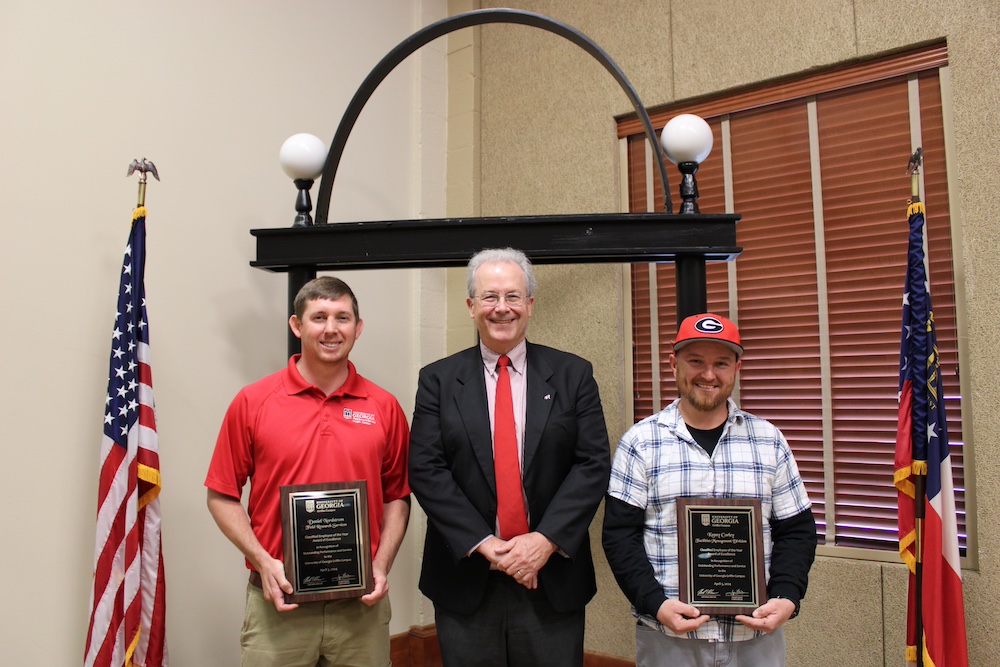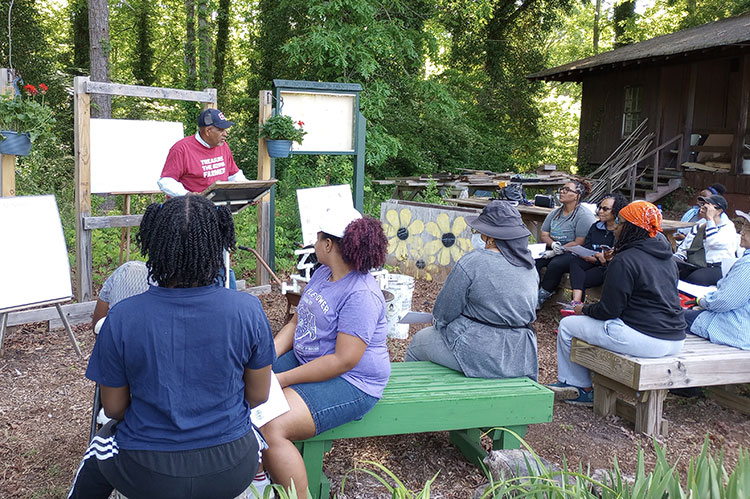By Sharon Omahen
University of Georgia
Each year more than 3.5 million tons of recyclable yard waste is unnecessarily sent to landfills. Viewed by many as rubbish, home gardeners see this waste as "gardener's gold."
"Yard waste can be converted into compost," said C.B. Christian, northeast director of the Georgia Master Gardeners Association. "It's simple to construct a container which would save much in purchasing bags of amendments."
Use what you have
Christian says a compost container can be anything from a wire cage to pressure-treated lumber or whatever material you have available.
He suggests building two 4-by-4-by-3-foot bins side-by- side.
"You can continuously add material throughout the process," Christian said. "Work out of the first bin and build the second for later."
Many compost bin designs are available on the University of Georgia Cooperative Extension Web site at www.ugaextension.com.
Whether you choose a freestanding or a contained bin, decomposition requires four things: an adequate mix of carbon and nitrogen materials, plenty of air, sufficient moisture and a population of organisms. Place your bins in a full-sun or partial-sun location.
How to start the process
To begin your composting project, start with a 6-inch layer of ground leaves, grass clippings, egg shells and any raw vegetable scraps. To that layer, add an inch of soil and shredded newspaper. Moisten and continue with the next layer.
Ground materials collected from a mower grass bag or a chipper-shredder decompose four times as fast as those not ground. Make sure your yard waste isn't contaminated with disease.
"Compost bins need brown as well as green material for adequate decomposition," Christian said. "And don't add meat products or you will attract rodents."
If you add manure, make sure it has been aged at least one year to prevent the risk of E. coli contamination.
To jump-start the decomposition process, Christian recommends adding a very small amount of ammonium nitrate or any nitrogen-containing fertilizer.
"The bins should eventually heat up to 170 degrees after a few days and decompose gradually," he said. Through the natural breakdown process, in six months a pile 3 feet deep will gradually decompose to 1 1-2 feet.
Stir weekly, or have worms do it
To maintain your compost, turn the pile weekly and keep the material moist, but not wet.
To attract worms, add vegetable scraps and corn meal.
"Worms are great turners of the pile, and as they work, they put out their body weight of manure each day," Christian said.
The finished compost should be an odor-free, ready-to-use amendment for gardens or flowerbeds. It can also be used as potting soil.
"To prevent still viable seeds from germinating, you may add either a pre-emergent (herbicide) or a 3-inch layer of mulch," Christian said. "Otherwise, you may have tomatoes, peppers and other unwanted plants in your compost."
For more information on this or other gardening topics, contact your local UGA Cooperative Extension agent at 1-800-ASK-UGA1. Or visit the UGA Extension Web site at www.ugaextension.com.






